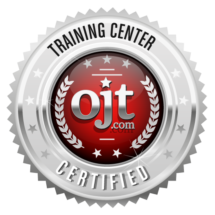
INDUSTRY-LEADING LIVE
INSTRUCTOR-LED TRAINING
World Class Training Content, Delivered On-Demand
BRIDGING THE GAP
between career seekers
& employers
from COAST-TO-COAST

World Class Training Content, Delivered On-Demand
between career seekers
& employers
from COAST-TO-COAST
Diagnostic Medical Sonographers
QUALIFICATIONS
A certificate, high school or General Educational Development (GED) diploma, or Associate’s degree involving 6 months to a year of clinical instruction-based “Sonography or radiologic technology” study and practice credit hours accredited by a nationally recognized certifying body, such as the American Registry of Diagnostic Medical Sonography (ARDMS), American Registry of Radiologic Technologists (ARRT) and the Commission on Accreditation of Allied Health Education Programs (CAAHEP), and must pass exams such as the Sonography Principles and Instrumentation Examination administered by them; combined with Diagnostic Medical Sonographer – On the Job Training (OJT) programs, Apprenticeships, Sonography Healthcare Workforce Job Training or Experience; that include topics and Sonography practice covering Radiology & Sonography concepts and its application areas, body, organ and skeletal systems, sonography procedures, practices and data collection, diseases/conditions, equipment, devices, and methodologies, reporting and documentation standards, professional ethics, and health information technology.
AVERAGE HOURLY PAY
(Credits: www.payscale.com)
| Entry-level (0-12 months) | $ 25.91 |
| Early career (1-4 years) | $ 28.28 |
| Mid-career (5-9 years) | $ 32.38 |
| Experienced (10+ years) | $ 35.56 |
PROJECTED GROWTH
(Credits: www.bls.gov)
Diagnostic Medical Sonographer is an excellent career, in which employment is projected to grow at a strong 12 percent from 2019 to 2029.
SKILLS/ TRAITS NEEDED
Besides good sonography, equipment, and ultrasound knowledge, the Diagnostic Medical Sonographer must be professional, ethical, “patient-centric”, proactive, agile, and alert with a high degree of patience, perseverance; and have great listening, interpersonal, communication skills, compassion, caring, empathy, dexterity, time management & prioritization; and most importantly be extremely flexible and committed to performing the Diagnostic Medical Sonographer duties and responsibilities. They are expected to be “patient-centered” and comforting, having a good working knowledge of medical terminology, expertise in sonography and its devices, reading, interpreting, and reporting technical findings, and suggesting further procedures; be self-organized, and liaise & report effectively and efficiently with the Medical Team and the patient’s household taking necessary precautions, comforting, and following the health protocols for the good health, fitness, well being, and safety of the patients.
WORK FUNCTIONS
Diagnostic Medical Sonographers, use imaging ultrasound equipment like the transducer and sound waves i.e. ultrasounds and perform diagnostic procedures to form images of, and study, parts, organs, tissues, or blood flow inside the body. They acquire, examine, analyze, perform clinical assessment and prepare relevant reports, based on the sonographic images obtained; helping the doctor diagnose and treat various medical conditions. Allied responsibilities include explaining the diagnostic procedure to and comforting the patient, identifying, and interpreting normal and abnormal technical findings; maintaining the medical records, ultrasound equipment, and supplies, addressing problems and inquiries from the patient, and managing the imaging department. They may sometimes be needed to work in shifts.
Related Careers